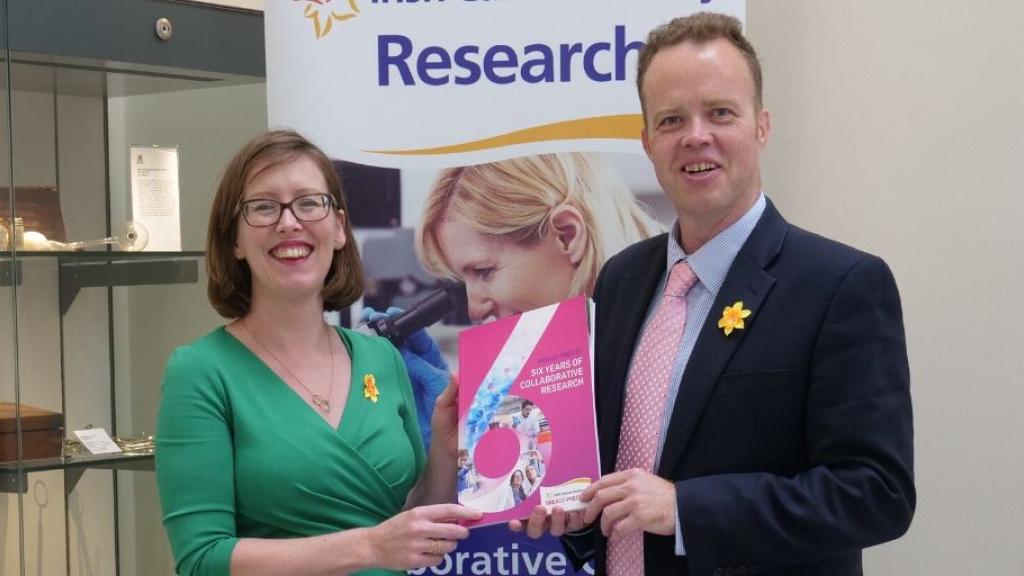
BREAST-PREDICT Thank You Note
A Thank You note from Prof. William Gallagher, Director of BREAST-PREDICT, and Dr. Fiona Lanigan, BREAST-PREDICT Centre Manager
It has been 6 years since the BREAST-PREDICT team first got together to tackle the significant barriers facing breast cancer research in Ireland. Our team brought together key experts from around the country in multiple disciplines, from surgeons to medical oncologists, laboratory researchers to computer scientists, clinical trials experts to population scientists, with each providing their own distinctive viewpoint. This unique arrangement allowed for a truly collaborative team, with the ability to share resources and expertise, tackle evolving challenges in breast cancer, and unite the fragmented strands of Irish breast cancer research.
The success of BREAST-PREDICT is evidenced by its achievements, with researchers within the Centre having published over 90 original research articles in cutting-edge areas, including: examining the impact of previous exposure to aspirin on breast cancer outcome, diagnosing breast cancer via a blood test, improving understanding of treatment resistance, and developing new treatments targeted at Her2 and p53. The team have now tested 17 novel therapies, and 7 breast cancer diagnostic tests are in development (Further details on our work can be seen in the donwloadable booklet). The vision of BREAST-PREDICT was that each breast cancer patient in Ireland should have their treatment plan tailored for their individual cancer. This is now starting to happen, although there is still considerable ground to cover.
A core goal of BREAST-PREDICT when we began back in 2013 was to build a National Breast Cancer Bioresource. Over the past 6 years, the BREAST-PREDICT team has worked to integrate existing biobanks, while collecting and storing samples and data from newly diagnosed breast cancer patients in a standardised fashion through a clinical study run by Cancer Trials Ireland. In total, more than 3,300 patients from 15 Irish hospitals have been accrued to BREAST-PREDICT supported trials since 2013. Access to this high-quality resource is key for researchers to better understand how breast cancers can spread and become resistant to treatment, and is already transforming how breast cancer research is carried out in Ireland.
Another central focus of BREAST-PREDICT was to expand the training opportunities available to PhD students and early-career researchers working in cancer research in Ireland. Thanks to our training programme, which included visits to top research labs around the world, a regular visiting seminar series, and support for conference attendance and publications, BREAST-PREDICT researchers are now among the most well-trained in the world. We have great pride and high hopes in particular for our PhD students, now scattered all over the world from Oxford to Harvard and beyond, who act as our strongest ambassadors. We hope that some of them may return home in the future, bringing their expertise and ushering in a new era for cancer research in Ireland.
A vital feature of the BREAST-PREDICT journey was the growing input of the patient voice in cancer research. Our researchers benefited considerably from close engagement with patient advocates, and BREAST-PREDICT held multiple patient-oriented seminar events throughout the course of the programme. There has been a positive shift towards a richer level of patient involvement in guiding research priorities, and we were happy to provide this much-needed forum for two-way dialogue between patients and cancer researchers.
Cancer is a complex disease, and to tackle it we need to apply innovative, inter-disciplinary approaches such as those pioneered by the BREAST-PREDICT team. One of the strengths of being a Centre is the ability to share the burden of supporting large-scale, expensive, far-reaching studies which individual research groups would not be able to support alone. As one of our independent scientific expert advisors described it, BREAST-PREDICT was ‘far greater than the sum of its parts’.
We envisage that the impact of BREAST-PREDICT on cancer research and on cancer patients themselves will continue to be seen in the years to come. To each and every one of you who have supported our programme by donating to the Irish Cancer Society, thank you.
